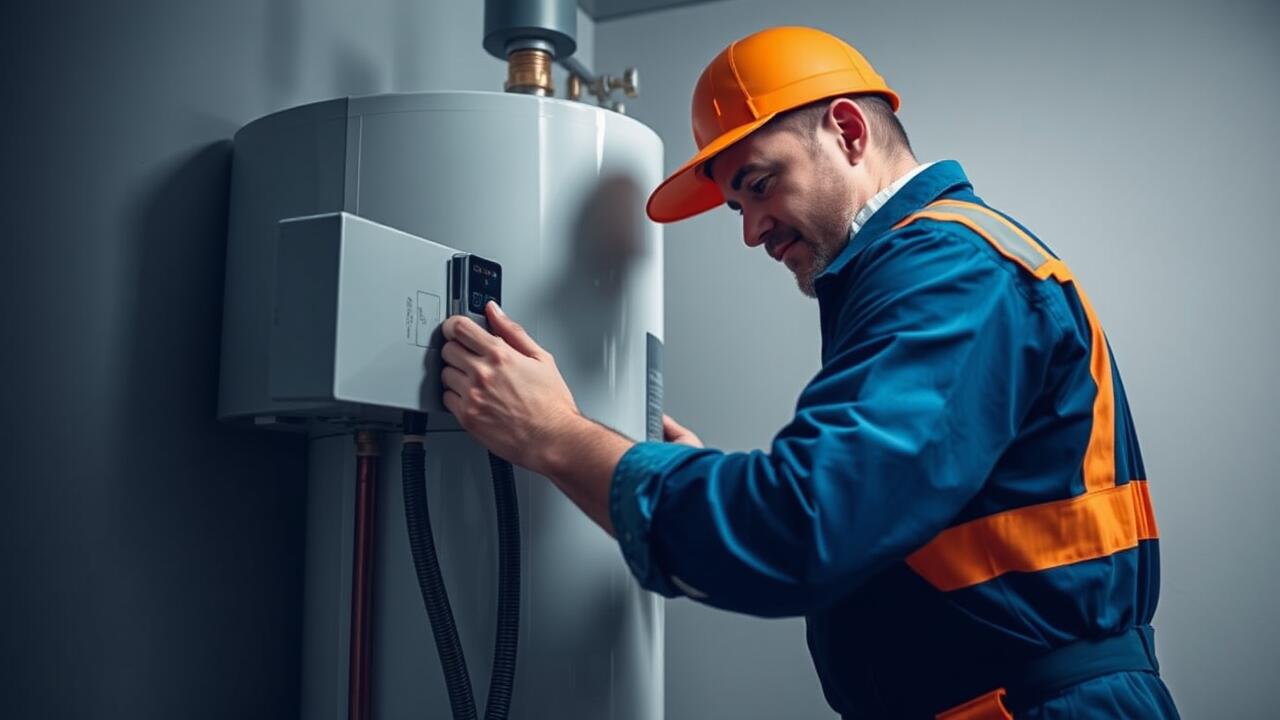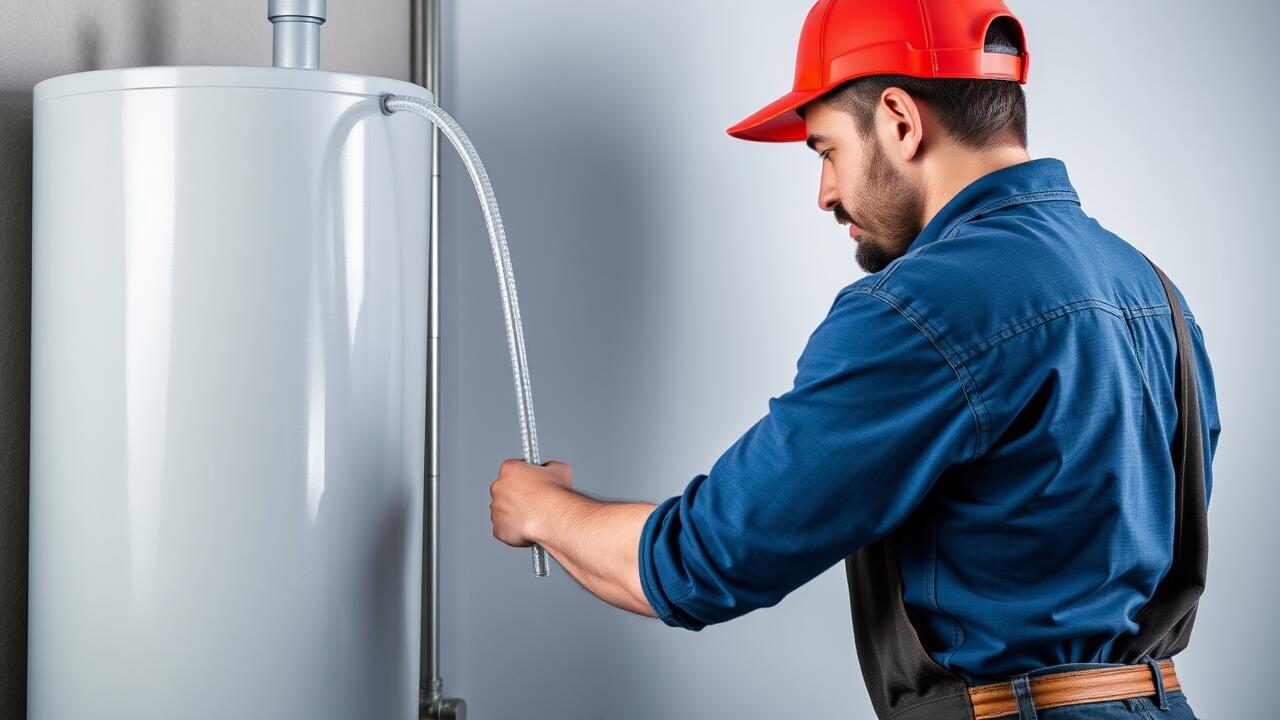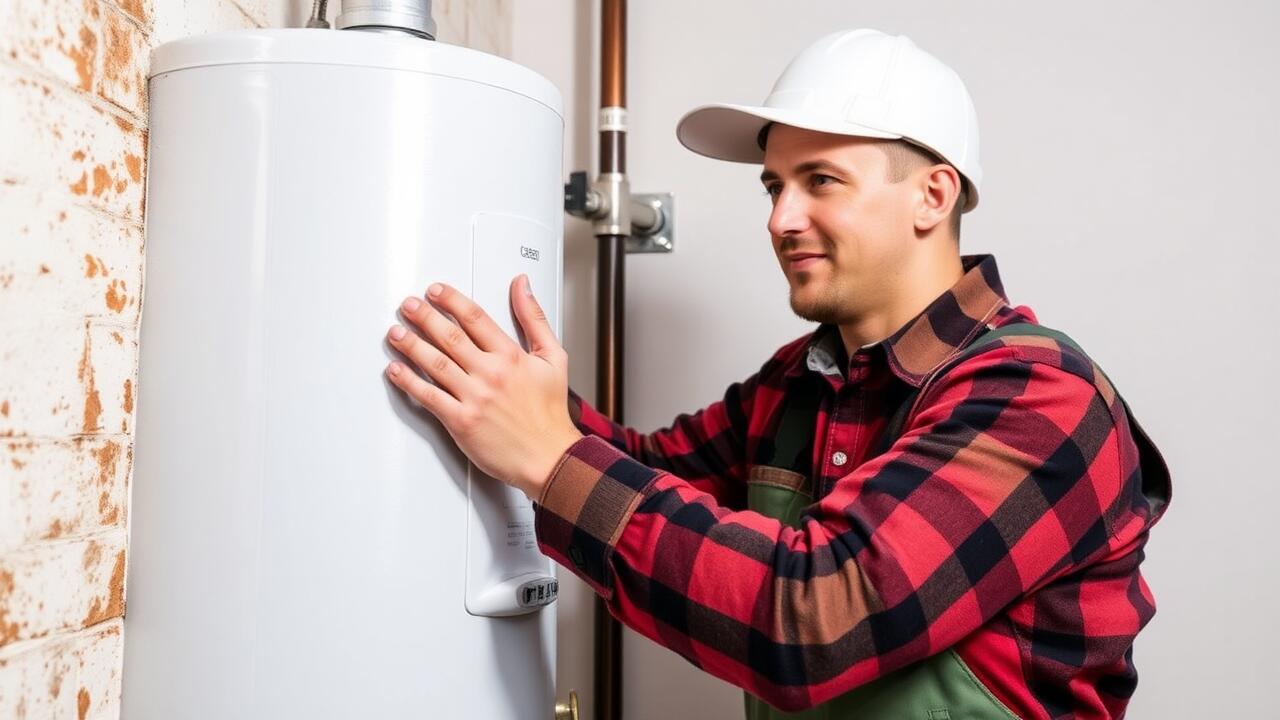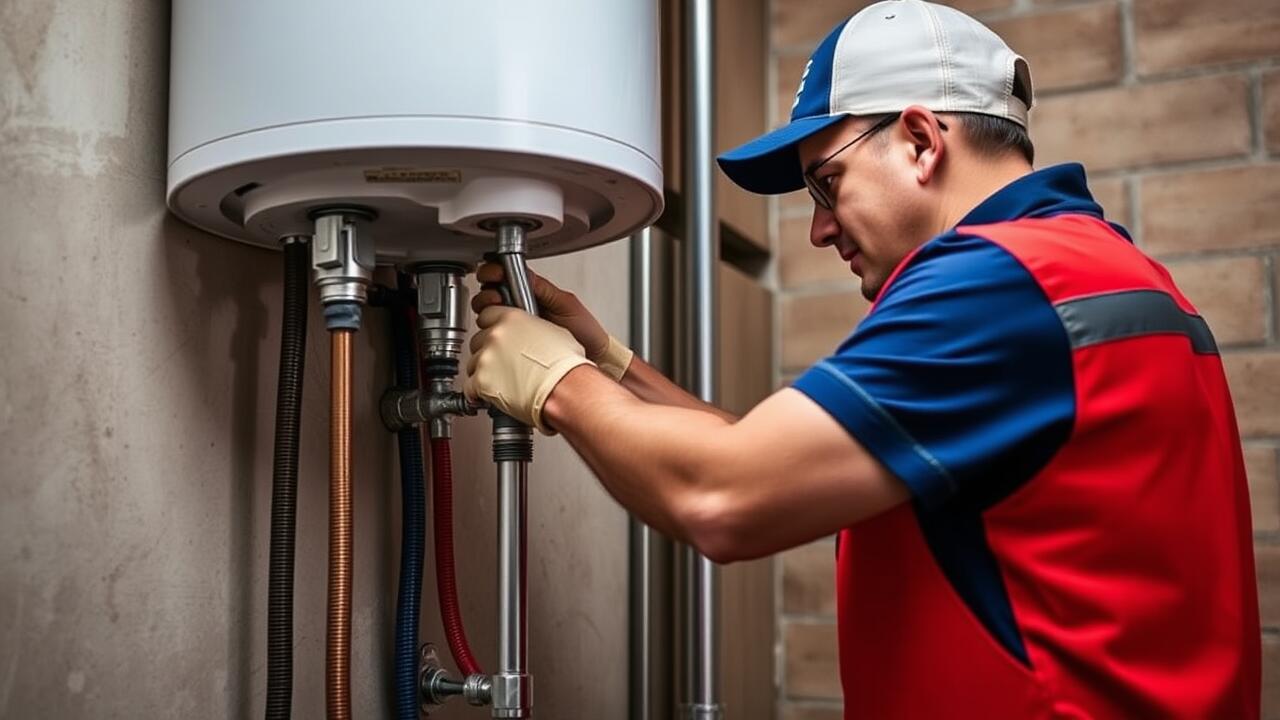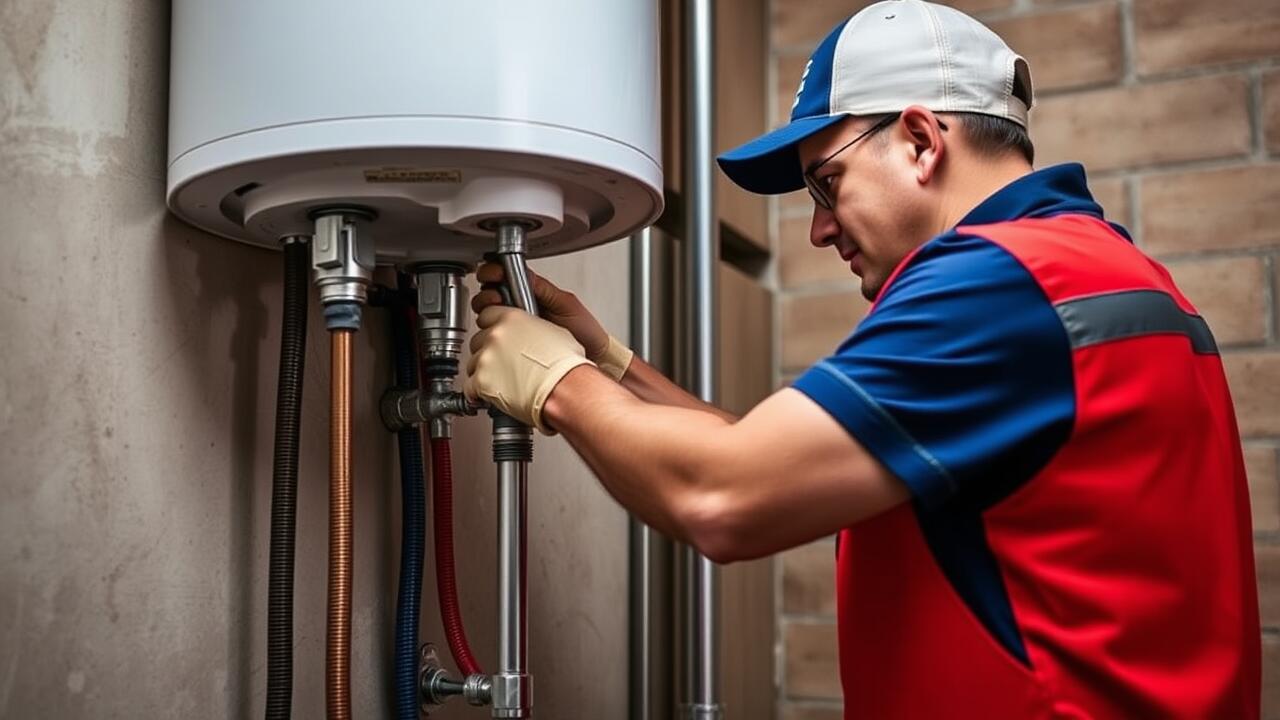
Environmental Impact of Repairing vs. Replacing
When deciding between repairing or replacing a ten-year-old water heater, the environmental impact is a significant factor. Repairing an existing unit tends to produce less waste compared to a complete replacement. Choosing to repair means fewer materials are sent to landfills. It also reduces the demand for manufacturing new units, which typically involves resource extraction and energy consumption.
On the other hand, older water heaters may consume more energy due to outdated technology. If repairs are costly or frequent, they might offset any environmental benefits. For homeowners, searching for "Water heater repair near me" can lead to solutions that extend the lifespan of their unit without overindulging in unnecessary waste. Ultimately, weighing the environmental advantages against potential costs can guide a more informed decision.
Analyzing Carbon Footprint and Waste
Repairing a ten-year-old water heater can have a significant impact on its carbon footprint and waste generation. When considering whether to repair or replace, it is essential to recognize that manufacturing new appliances generally involves substantial energy consumption and resource use. Choosing to repair instead of opting for a new model can help reduce overall emissions associated with production and transportation. This approach allows you to contribute to a more sustainable environment by minimizing unnecessary waste.
When assessing the environmental benefits of repairs, local services offering "water heater repair near me" can play an important role. By utilizing nearby repair resources, homeowners can decrease the carbon footprint associated with transportation while supporting local economies. Additionally, repairs often extend the lifespan of existing equipment, reducing the frequency of replacements and the number of discarded units. Making informed decisions about repairs aligns with eco-friendly practices and lessens the environmental impact of everyday appliances.
Warranty Considerations
When considering whether to repair a 10-year-old water heater, warranty coverage plays a crucial role. Many manufacturers offer warranties that last between 6 to 12 years. If the unit is still under warranty, repairing it can be more cost-effective. Homeowners should carefully review the warranty terms, as they may cover specific parts or repairs. Knowing the details can help avoid unexpected expenses.
If the warranty has expired, additional expenses might arise from repairs and lack of coverage for specific components. Local services like "water heater repair near me" can provide insight into typical repair costs. Evaluating the age and performance of the water heater alongside warranty considerations will facilitate a more informed decision.
Reviewing Coverage for Repairs
When contemplating the repair of a 10-year-old water heater, it's essential to review the warranty coverage for any applicable repairs. Depending on the manufacturer and model, the warranty may only cover specific components or may have expired entirely. Checking your documentation can clarify what repairs might be covered and for how long, helping you evaluate if a repair is financially viable compared to investing in a new unit.
In addition to warranty considerations, it's wise to assess the availability of technicians who can perform the necessary repairs. Locating qualified professionals near you with experience in older models is crucial for successful maintenance. A quick online search for "water heater repair near me" can connect you with local experts who understand the intricacies of your aging unit. Their insights can provide you with a better perspective on whether the repair is advisable based on coverage and potential costs.
Availability of Replacement Parts
When considering whether to repair or replace a 10-year-old water heater, the availability of replacement parts is a crucial factor. Older models often face challenges in sourcing specific components due to changes in manufacturing standards and inventory practices. This can lead to delays in repairs and potentially affect the unit's efficiency if parts are outdated or no longer produced. Exploring local resources and suppliers can provide insight into what’s accessible for your specific model.
For homeowners looking for solutions, a search for "water heater repair near me" can yield local technicians who may have the necessary parts or alternative options. Some services specialize in older units and may have a stockpile of parts from discontinued models. Knowing the availability of these resources can assist in making an informed decision about whether to invest in repairs or pursue a newer, more efficient model that will have readily available parts for years to come.
Assessing Supply for Older Models
Finding replacement parts for a 10-year-old water heater can be challenging. Many manufacturers phase out older models, and as technology progresses, some components may become obsolete. The supply of necessary parts may be insufficient, leading to longer wait times for repairs or the need to look for alternatives, which might not be ideal for maintaining the unit's efficiency and safety.
When considering water heater repair near me, it is essential to assess local service providers' ability to source parts for older models. Some repairs may require specialized components that are not readily available in the market. Investigating local plumbing services can provide insight into the availability of these parts and how it may impact the overall cost and feasibility of repairs versus replacements.
FAQS
How can I determine if my 10-year-old water heater is worth repairing?
To determine if your water heater is worth repairing, consider its current condition, the cost of repair versus replacement, the frequency of repairs needed, and its overall efficiency. If repair costs are more than 50% of a new unit and the heater is nearing the end of its expected lifespan, replacement might be a better option.
What environmental factors should I consider when deciding to repair or replace my water heater?
When making your decision, consider the carbon footprint of both options. Repairing may reduce waste if the unit can be efficiently restored, while replacing an older model with a new, energy-efficient heater can lead to lower energy consumption and a reduced environmental impact in the long run.
Are there warranties that cover repairs for older water heaters?
Many manufacturers offer warranties that cover parts and sometimes labor for a specific period. However, for a 10-year-old water heater, the original warranty may have expired. Check if any extended warranties or service plans are available that could cover repair costs.
What should I know about the availability of replacement parts for older water heaters?
Availability of replacement parts can be a significant factor in your decision. Many manufacturers continue to produce parts for older models for several years, but eventually, parts may become scarce. If parts for your unit are difficult to find, it might be a sign to consider a replacement.
How can I evaluate the efficiency of my old water heater?
To evaluate your old water heater's efficiency, check its energy factor (EF) rating, which indicates how efficiently it converts energy into hot water. Compare this rating to newer models; if your water heater has a significantly lower rating, it may be more cost-effective to invest in a new, energy-efficient unit.
